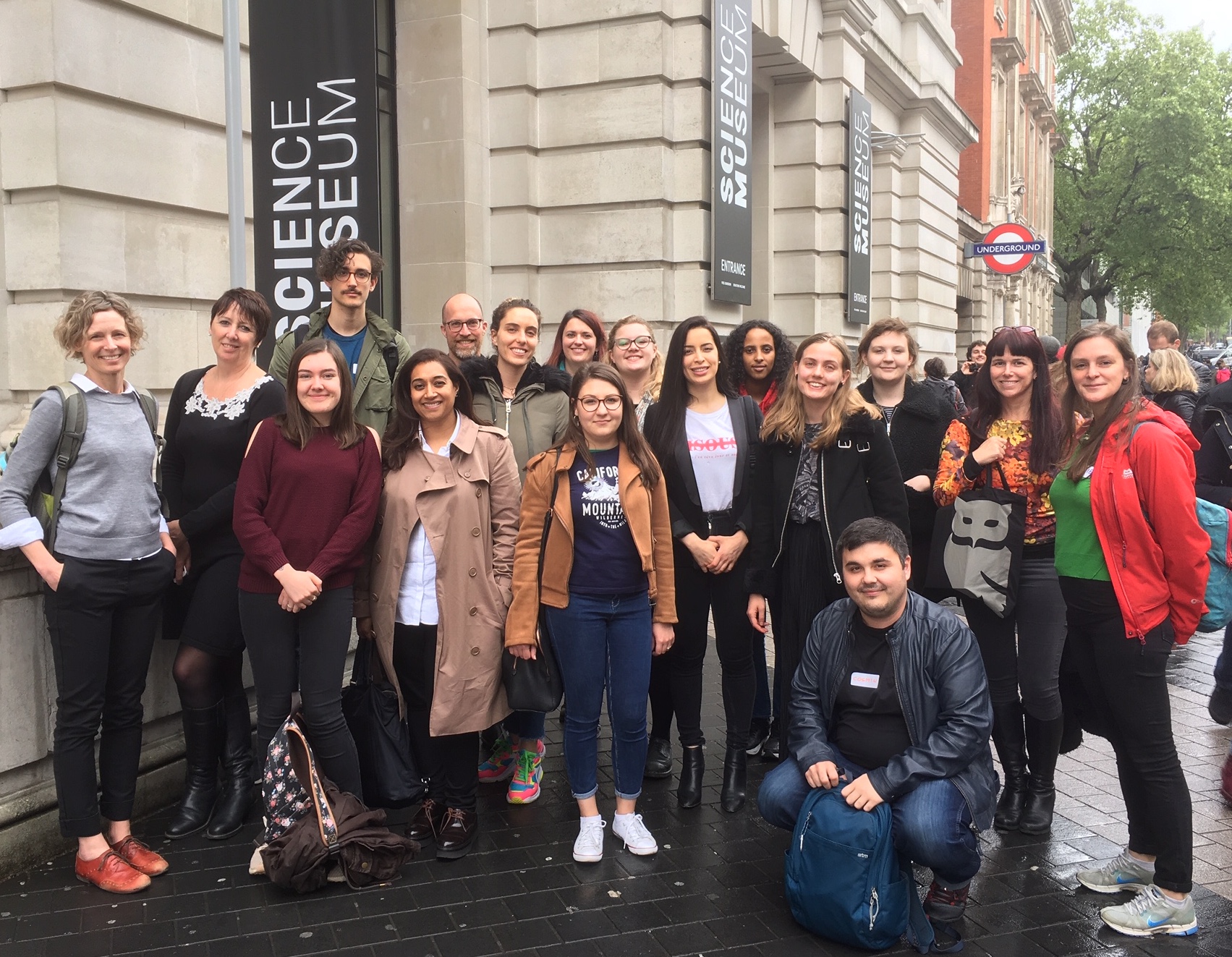Scientists from Birkbeck and collaborating institutions are in the ‘Who Am I?’ gallery all summer to present the ‘Me, Human’ project. Dr Gillian Forrester reflects on what led her to research this topic.
Me, Human is a live scientific experiment which will investigate how traits from our 500 million year-old vertebrate brain still underpin some of our most important and human unique behaviours – like recognising faces and generating speech. At Live Science this summer you’ll use your eyes, ears and hands to find out more about how your ancient brain actually works. We are a multidisciplinary team of scientists at all levels of our careers from undergraduate students in psychology and biological anthropology to senior academics at leading London universities. We all have a passion to communicate science and demonstrate how we, as humans, share a common evolutionary history with other animals – and to reveal our extraordinary connection to the natural world.
We are all individuals, but we acknowledge that we might have inherited grandma’s nose or dad’s extrovert personality. Have you ever thought about what physical and psychological traits we humans – as a species – have inherited from our ancestors?
As a child, I was fascinated by our closest living relatives – the great apes. I wondered – what do gorillas and chimps think? How similar is their experience of life to mine? I scratched this itch by watching documentaries, reading books and eventually taking degrees in San Diego and Oxford. It was during my studies that I started to learn about brains and how they control behaviour. What struck me as truly incredible was that there are parts of the human brain that come from when humans and fish shared a common ancestor – over 500 million years ago!
As humans, we are able to think and act in ways unlike any other animal on the planet. Because of these unique capabilities, it is easy to forget that modern human abilities have their origins in a shared evolutionary history.
 Although we are bipedal and comparatively hairless, we are indeed great apes. In fact, we are not even on the fringes of the great ape family tree – we are genetically closer to chimpanzees than chimpanzees are to gorillas. As such, we share many brain and behaviour traits with our great ape cousins. But our similarities to other animals date back much farther than our split with an ancestor common to both humans and great apes (approximately six million years ago). Some brain and behaviour traits date back over 500 million years –present in early vertebrates and remain preserved in modern humans.
Although we are bipedal and comparatively hairless, we are indeed great apes. In fact, we are not even on the fringes of the great ape family tree – we are genetically closer to chimpanzees than chimpanzees are to gorillas. As such, we share many brain and behaviour traits with our great ape cousins. But our similarities to other animals date back much farther than our split with an ancestor common to both humans and great apes (approximately six million years ago). Some brain and behaviour traits date back over 500 million years –present in early vertebrates and remain preserved in modern humans.
It is our similarities and differences to other species that allow us to better understand how we came to be modern humans.
 One of our oldest inherited traits is the ‘divided brain’. While our left and right halves of the brain (hemispheres) appear physically similar, they are in charge of different behaviours. Because the left and right hemispheres control physical behaviour on the opposite side of the body, we can see these dominances revealed in the everyday actions of animals (including humans).
One of our oldest inherited traits is the ‘divided brain’. While our left and right halves of the brain (hemispheres) appear physically similar, they are in charge of different behaviours. Because the left and right hemispheres control physical behaviour on the opposite side of the body, we can see these dominances revealed in the everyday actions of animals (including humans).
Animal studies have highlighted that fishes, amphibians, reptiles, and mammals also possess left and right hemispheres that differentially control certain behaviours. The divided behaviours of these animals provide a window into our ancestral past, telling the story of our shared evolutionary history with early vertebrates.
Studies suggest that the right hemisphere emerged with a specialisation for recognising the threat in the environment and controlling escape behaviours and the left hemisphere emerged as dominant for producing motor action sequences for feeding (as pictured above). The divided brain allows for any organism to obtain nourishment while keeping alert for predators. We can think of the brain as acting like an ‘eat and not be eaten’ parallel processor.
Considering the consistency in brain side across different animal species, it seems likely that there has been a preservation of these characteristics through evolutionary time. Effectively, we have lugged our useful brain and behavioural traits with us throughout our evolutionary journey.
But why should we care?
Little is known about how these old brain traits support modern human behaviours, like the way we navigate social environments, kiss, embrace, nurture babies and take a selfie! – inhibiting a better understanding of how, when and why our human unique capabilities emerged and also how they still develop during human infancy and childhood.
By taking part in Me, Human at Live Science you will learn about cutting-edge research and engage with fun psychology experiments. This project challenges you to use your eyes, ears and hands to find out more about how ancient brain traits still control some of your most human unique behaviours. Work with scientists to explore how you use a divided brain to experience the world around you. We invite Science Museum visitors to solve puzzle boards, test your grip strength, hold and manipulate objects, recognise faces and react to different sounds. Watch your brain in action, using portable brain-imaging, as you take part in activities that will help us to better understand human brains and behaviours.
Come and join me and the Me, Human project team on this journey of exploration to find out what it is to be human and how we are connected to all animals in the natural world. Open until Monday 30 September 2019.
- Director of the Me, Human Project
- Reader in Psychology
- Senior Fellow of the Higher Education Academy
- Deputy Head of Department, Psychological Sciences, Birkbeck, University of London
Visit the exhibition at the Science Museum, London. Follow the Me, Human team on Twitter. #mehuman #livescience.



 Professor Oaksford, the head of
Professor Oaksford, the head of  Birkbeck’s excellent research reputation in psychology attracted Chirantha Ulapane (CJ) to the university, but the evening teaching fitted with his lifestyle as well, and enabled him to combine his study with work as a healthcare assistant. CJ says: “Studying in the evenings appealed to me as it allowed me to gain professional experience alongside developing academically and applying that knowledge into the workplace immediately.”
Birkbeck’s excellent research reputation in psychology attracted Chirantha Ulapane (CJ) to the university, but the evening teaching fitted with his lifestyle as well, and enabled him to combine his study with work as a healthcare assistant. CJ says: “Studying in the evenings appealed to me as it allowed me to gain professional experience alongside developing academically and applying that knowledge into the workplace immediately.”
